Why I Joined an Organised Tour to Russia
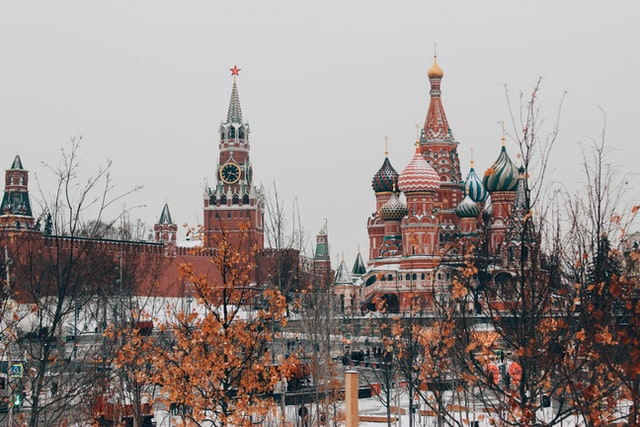
As a history major, I couldn’t get enough of Russian history and culture as an undergrad. I took every Russia-related course that my university offered, from 19th-century history to a course on totalitarian artistic movements. I was fascinated by the country’s progression from feudalism to revolution to communism to capitalism in under a century.
While studying abroad in the Czech Republic, I knew I had to visit Russia while I was in that part of the world (I lived in New Zealand at the time). But I was only 21, and although I was a seasoned traveller by that age—having been on many family holidays abroad, as well as travelled to the UK with a friend when I was 17—I didn’t feel comfortable going to Russia alone and decided to take a tour to Russia.
I decided to travel to Scandinavia and Russia with a Contiki tour, and spent the previous semester cleaning a motel in order to pay for it. I had never been on an organised tour before, apart from a high school trip to Japan. My family didn’t do that kind of thing: we were independent travellers, booking our own accommodation, working through language barriers, taking a chance with different foods and local transportation.
So although a lot of young, first-time travellers—especially women—feel that breaking off and going alone is the radical step, in my situation, joining a tour was the unknown, risky option.
Although a lot of young, first-time travellers—especially women—feel that breaking off and going alone is the radical step, in my situation, joining a tour was the unknown, risky option.
Yet, after a semester in the Czech Republic, I wasn’t sure that I wanted to go to Russia any longer. I feared that spending so much money hadn’t been wise. I had fallen in love with Prague, and the Czechs’ deep scorn for Russia had rubbed off on me. They had good reason to be bitter. Czechoslovakia had been handed over to the Soviets after WWII, and in 1968—after the Prague Spring, a time of political liberalisation in Czechoslovakia—the Soviet Army invaded, crushing all dissent throughout the 1970s and ‘80s. The Czechs had not forgotten or forgiven.
But, as soon as I joined, I was glad that I had. “Whistle-stop” is one way of describing the itinerary—which started in Copenhagen, then went up to Stockholm, Helsinki, St. Petersburg, Moscow, Novgorod, Minsk, Warsaw and Berlin, in under three weeks. But for someone like me, who was genuinely interested in the culture, art and architecture of this part of the world, it was a good introduction.
We were taken to quirky restaurants and bars that were recommended by all of the important guidebooks.
The tour was extremely well run by a 27 year-old Australian woman and a Kiwi driver, with a balance of group and free time. We would drive to the highlights of the cities we passed through, stopping at select galleries, museums or palaces for a guided tour. We stayed at a variety of places: cabins in Stockholm, a Soviet-era hotel block in St. Petersburg, a youth hostel in Berlin.
We were taken to quirky restaurants and bars that were recommended by all of the important guidebooks. We were given pointers on how to spend free afternoons. Although there was a lot of sitting in a bus, we always stopped somewhere interesting between destinations, such as Tchaikovsky’s birthplace in Russia, and the site of the Katyn massacre in Belarus.
I was pleasantly surprised by Stockholm’s old city, and waking up to the sight of Helsinki’s skyline after a night on the ferry between Sweden and Finland was memorable. But I was enormously excited to arrive in Russia, and I wasn’t disappointed. I was awed by the enormous grandeur of the palaces in St. Petersburg, so much larger and more opulent than their counterparts in Western or Central Europe.
More impressive still was Moscow, a city that felt like nowhere else, not entirely European in atmosphere or architecture, but not tangibly anything else, either. It was just Russia, a category of its own. The colourful onion-domed St. Basil’s Cathedral (much more impressive outside than in), Lenin’s mausoleum (my first sight of a corpse), the artfully decorated metro and stirring, Socialist Realist propaganda monuments. I kept telling myself that I would return later, on my own, to see these places in more depth.
Would I go on such a guided tour again? Certainly not. They’re much more expensive than independent travel, the itineraries are rushed, and you don’t necessarily like everyone you’re forced to spend time with.
Contiki tours have a bit of a reputation as binge-drinking tours, and that reputation isn’t entirely unfounded. At least half of the group were young Australians (enough said?), and nights out at pubs and clubs were organised in every city. While I definitely joined in, I didn’t want the nightlife to interfere with what I’d come to Russia to see. I was horrified that half the group was too hungover to take a tour of the Kremlin in Moscow, opting instead to nap on the grass outside.
But there were a lot of people just like me, too. An American girl who had just finished a semester in London; three Australian nurses living in Ireland; a new couple on their first trip together; a Belarussian American Jew who wanted to return to the land of her birth in a way that her parents would allow.
We did the nerdy things together, appreciating the imperial treasures and totalitarian art in the art galleries by day, while still eating and drinking well at night.
Why didn’t I feel confident travelling to Russia alone at 21? When I booked the Contiki tour, back in New Zealand, I had only ever travelled to English-speaking countries alone. During my semester in Prague, as well as travelling with friends and meeting up with people en route, I travelled solo around a number of places in Central and Northern Europe. By the time I went to Russia, I was no longer daunted by the idea of being in a place where I couldn’t communicate easily.
But Russia felt a bit scarier: I had heard that the police (as well as impersonators) had a tendency to scam foreign tourists, particularly in Moscow. Nobody ever says they travel to Russia for the warmth of the locals, and this was certainly my experience, too. I just felt intimidated. Joining the tour, while not for everyone, allowed me to experience a place that I was interested in without the risks of independent travel.
Nobody ever says they travel to Russia for the warmth of the locals, and this was certainly my experience, too.
Would I go on such a guided tour again? Certainly not. They’re much more expensive than independent travel, the itineraries are rushed, and you don’t necessarily like everyone you’re forced to spend time with (the racist South African guy and the Australian girl who spent the whole time complaining about the food were low-lights of my trip).
But more than that, in the last ten years I’ve travelled extensively in Asia, learnt how to communicate through language barriers and negotiate even the most confusing public transportation systems; learnt how to keep walking and pay no attention when touts start hassling me; learnt how to spot a scam or shady character a mile off; learnt that a bad meal or sickness on the road are not trip-ruining calamities; and gained the confidence to look after my belongings and myself in stressful situations.
I haven’t yet returned to Russia to explore in more depth, but nowadays, I would travel there solo without a second thought.
I haven’t yet returned to Russia to explore in more depth, but nowadays, I would travel there solo without a second thought. Not necessarily because it’s any different to how it was a decade ago, but because nothing less than a war zone would intimidate me these days, after all I’ve seen and done. Confidence is not something that can be forced; it has to be learnt for oneself. So, I have fond memories of my Contiki tour, the fellow nerds and even the young drunks who I travelled with, for being a part of the process of becoming a less fearful traveller.
Why I Joined an Organised Tour to Russia
Have you traveled to Russia? How was your trip? Email us at [email protected] for information about sharing your experience and advice with the Pink Pangea community. We can’t wait to hear from you.
Why I Joined an Organised Tour to Russia photo credits: Elen Turner and Unsplash.

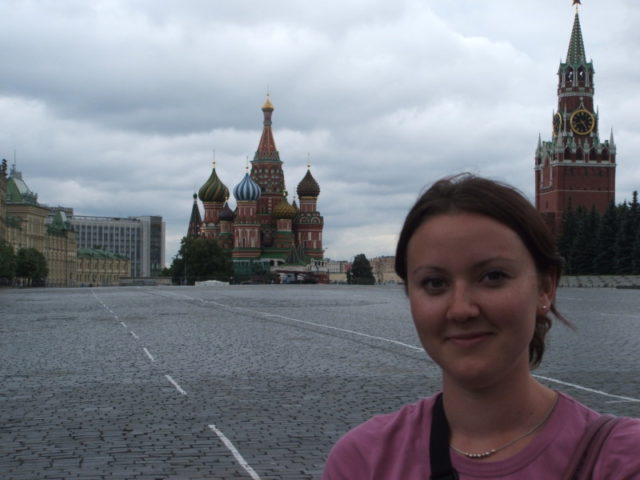
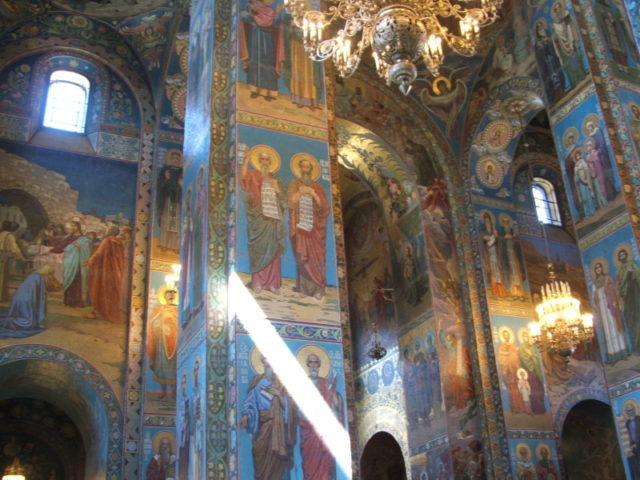
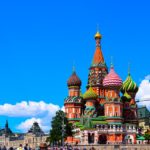
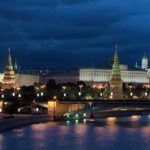

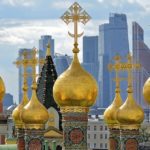
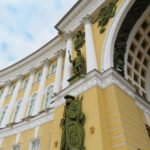
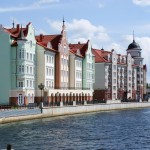

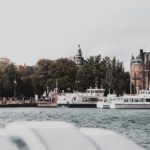
The money belt ‘secret wallets’ aren’t a bad idea… don’t think it’s necessary to get a family escort 🙂 If you live in South Africa, I’m sure you won’t struggle in Russia!
Awesome write-up. I’m also interested in visiting Russia at some point… would definitely booked an organised tour for it as well. I have a Ukranian friend, here in South Africa, who went into a panic when I mentioned wanting to visit. lol – she wanted to get me those ‘secret’ wallets and get her family to come show me around etc etc, warned me about going anywhere alone. She made me laugh… anyway, I hope to visit one day. 🙂